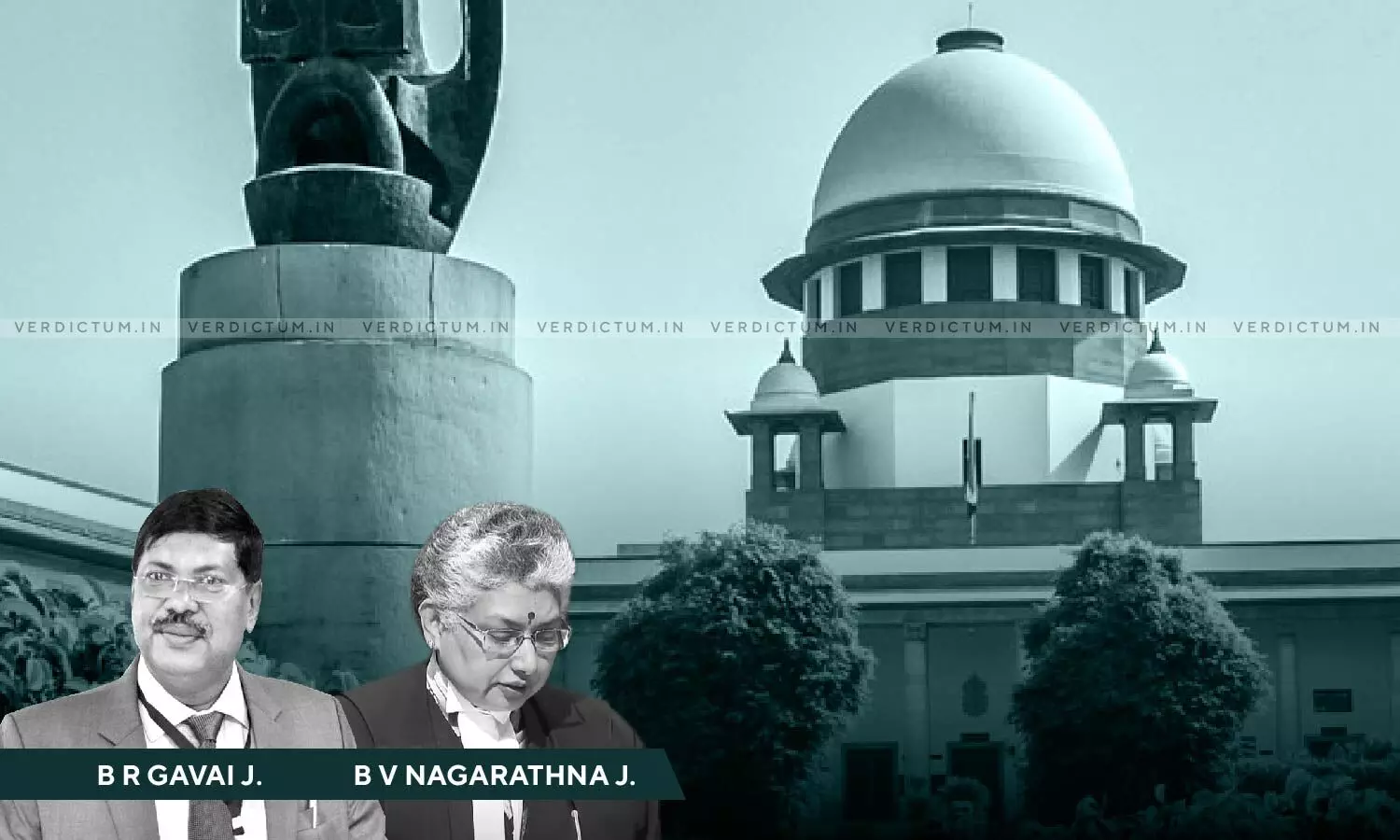
Duty Of Arbitral Tribunal To Give Reasoning Behind Determination Of Rate Of Interest On Award- Supreme Court
 |
|A Supreme Court Bench of Justice BR Gavai and Justice BV Nagarathna heard an appeal against an order passed by the Orissa High Court which confirmed an order passed by the Arbitral Tribunal. Allowing the appeal in part, the Supreme Court held that "When a discretion is vested to an arbitral tribunal to award interest at a rate which it deems reasonable, then a duty would be cast upon the arbitral tribunal to give reasons as to how it deems the rate of interest to be reasonable."
Counsel Sibo Sankar Mishra appeared for the Appellants, and Counsel Ashok Panigrahi appeared for the Respondents.
In this case, the Respondent was awarded the contract for the construction of 3 kilometers missing link on a National Highway (NH) on December 16th, 1971. The work was to be completed within one year i.e., before December 15th, 1972. However, the work could not be completed by the stipulated date and it was completed only on August 30th, 1977, and by that time the Respondent had already paid a large party of the contract amount.
The Respondent issued a notice to the Appellants regarding his claim but did not receive a favorable response. Thereafter, the Respondent filed a suit before the Trial Court, under Section 20 of the Arbitration Act, 1940, seeking reference of the dispute to arbitration.
The suit was decreed in the favour of the Respondent, and he was directed to file the original agreement in the Court for referring the dispute to arbitration. However, the Respondent failed to comply. Meanwhile, the 1940 Act was repealed, and the Arbitration and Conciliation Act, of 1996 came into force.
The Respondent thereafter filed an application in the disposed suit before the Trial Court, praying for the appointment of an arbitrator under the provisions of the 1996 Act. The same was rejected by the Trial Court for lack of jurisdiction.
The Respondent then moved before the High Court for the appointment of an arbitrator under Section 11 of the 1996 Act. The Single Judge of the High Court allowed the application and appointed an arbitrator.
The arbitrator awarded a claim amount, along with interest pendente lite at the rate of 18% per annum from April 1st, 1976 to the date of the award. He also directed the future interest to be paid at the rate of 18% per annum on the total of the two amounts until actual payment.
Aggrieved, the Appellants filed a petition before the District Judge under Section 34 of the 1996 Act for setting aside the award. The same was rejected.
Consequently, the Appellants filed an appeal under Section 37 of the 1996 Act before the High Court, which was also rejected. The Appellants approached the Supreme Court.
On perusing Section 31(7)(a), the Court held that although discretion is vested in the arbitral tribunal to include interest on the whole or any part in the sum for which the award is made, the Section also requires interest to be at such rate as the tribunal deems reasonable. In that context, the Court observed that "When the arbitral tribunal is empowered with such a discretion, the arbitral tribunal would be required to apply its mind to the facts of the case and decide as to whether the interest is payable on whole or any part of the money and also as to whether it is to be awarded to the whole or any part of the period between the date on which the cause of action arose and the date on which the award is made"
The Court found that the order of the District Judge and the High Court revealed that no such exercise had been undertaken, and the Arbitrator had awarded the interest without assigning any reasons.
It was further held that "in the facts and circumstances of the said case, it would be proper, equitable and in the interest of justice to reduce the rate of interest to 10% from 18% per annum." To do the same, the Supreme Court exercised its powers under Article 142 of the Constitution of India.
Consequently, the Court allowed the appeal in part and directed the respective changes in the order passed by the Arbitrator. Further, the Court ordered that the Appellants shall make the payment of the amount as determined by the Executing Court within a period of one month after the directions are passed.
No orders were passed regarding costs.
Cause Title - Executive Engineer (R and B) and Others v. Gokul Chandra Kanungo (Dead) Thr. His Lrs.
Click here to read/download the Judgment